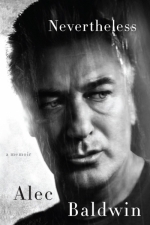
Nevertheless: A Memoir
Book
Drawing on his characteristic charisma, intelligence, and honesty, Alec Baldwin—one of the most...
Biography memoir entertainment

Live Messenger Pro
Social Networking and Utilities
App
Msn & Live Messenger Pro is app client of MSN & Windows Live Messenger based on MSNP 21 protocol...

Airtripp - Meet global friends
Social Networking and Travel
App
With Airtripp you can enjoy these FREE functions • Meet new friends around the world: - Make...

Best Online Sports Betting
Entertainment and Games
App
Betting App is the most advanced gambling comparison app - download our free app to get the best...

Malayala Manorama News App
News
App
Latest Kerala News in Malayalam and English. Local News with Live News Coverage, Sports News,...

L'Orient-Le Jour
News
App
- Avec l’application de L’Orient-Le Jour sur iPad, retrouvez l’actualité en direct, mise à...

Restaurant Guru - food & restaurants near me
Food & Drink and Lifestyle
App
Want to eat a tasty meal? Let us help you choose the best dining place in any city in the world:...
ClareR (6054 KP) rated The Country of Others in Books
Sep 19, 2021
Mathilde falls in love with, and marries, Amine Belhaj, a Moroccan stationed in Alsace. After the war, she sails to Morocco to live with Amine on his family farm. Life is so different to that in France, and Mathilde struggles to adapt. The French there shun her because of her husband, and Moroccans are suspicious of her because she’s French.
It’s a time of great upheaval in the 1950’s, as the Moroccans fight for independence from France, and life becomes increasingly dangerous for the Belhaj’s.
It’s a challenging life for Mathilde: she has to work hard, and Amine has a very fixed idea of a wife’s role. When she doesn’t stick to his rules, voices her opinions or disagrees, Amine beats her - he’s a violent man, scarred by the things that he saw and experienced in the war.
Mathilde does manage to insist that their daughter, Aicha, goes to a good French speaking school, and Aicha proves to be a good, diligent student - but the other girls at school are poisoned by their parents views: they’re very unkind and bully her.
There is a real feel for the heat and dust of Morocco. The contrasting cultures and religions of Christianity and Islam are shown, as well as the roles of women and how they are restricted in the light of their religions and it’s traditions. It looks at what it is to be a foreigner in a strange land; belonging, both in a country and a family; and the Moroccan struggle for independence from France.
This is going to be a trilogy, and I’m already fully invested in it - I can’t wait for the next book. Sam Taylor’s translation is perfect, and I hope that they’ll be translating the subsequent books as well.
Many thanks to The Pigeonhole for helping me (yet again!) with my NetGalley reading, and to Faber for my ebook copy through NetGalley.
Emma @ The Movies (1786 KP) rated Men (2022) (2022) in Movies
Jul 3, 2022
Harper takes some time away in the country, following the death of her husband. But the break isn't quite as restful as she'd hoped.
I had a lot of feelings about Men. The trouble was, every time I started thinking about it, my brain spiralled off into many debates.
With Jessie Buckley and Rory Kinnear, I was fairly certain that the performances would be solid. They didn't disappoint. Kinnear in particular showed immense dedication to his roles, especially considering some of the things he was having to do. But, despite the superb acting, the characters weren't all that easy to get along with... and yes, that's sort of the point, but never mind.
There seems to be a jumble of genres happening, the trailers for the film show some of its creepy horror-esque moments, and the dramatic portion is represented. In the middle of the film, where Harper suffers from phone issues, we get an odd flash of science fiction... it doesn't fit with the rest of the film, it could easily have been removed with no consequences and left us with something much more consistent.
According to writer and director, Alex Garland, the idea of Men is whatever the viewer takes away from it. I've heard plenty of opinions about the meaning behind the film, though mainly from a small demographic.
To me, it felt like a dive into the mind of a woman who had suffered psychological abuse, and how she deals with that trauma. There are certainly a lot of ways this could be taken, and Men could have been a bold statement, but not committing to an explanation was a bit of a cop out.
While I didn't dislike the experience of watching it on the big screen, I don't need to see it again. Ultimately, the inconsistencies left me wanting something more.
Originally posted on: emmaatthemovies.blogspot.com/2022/07/men-movie-review.html


